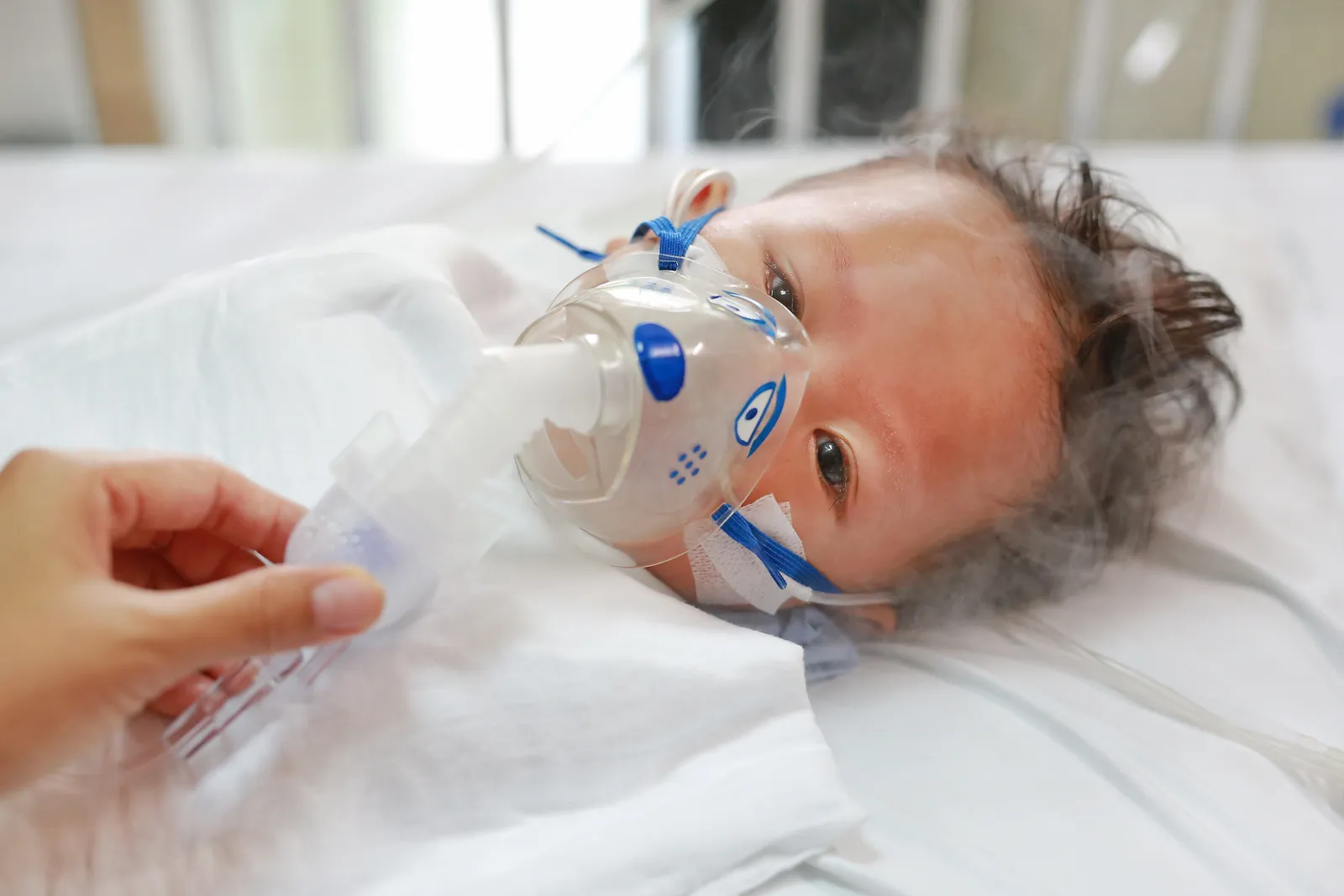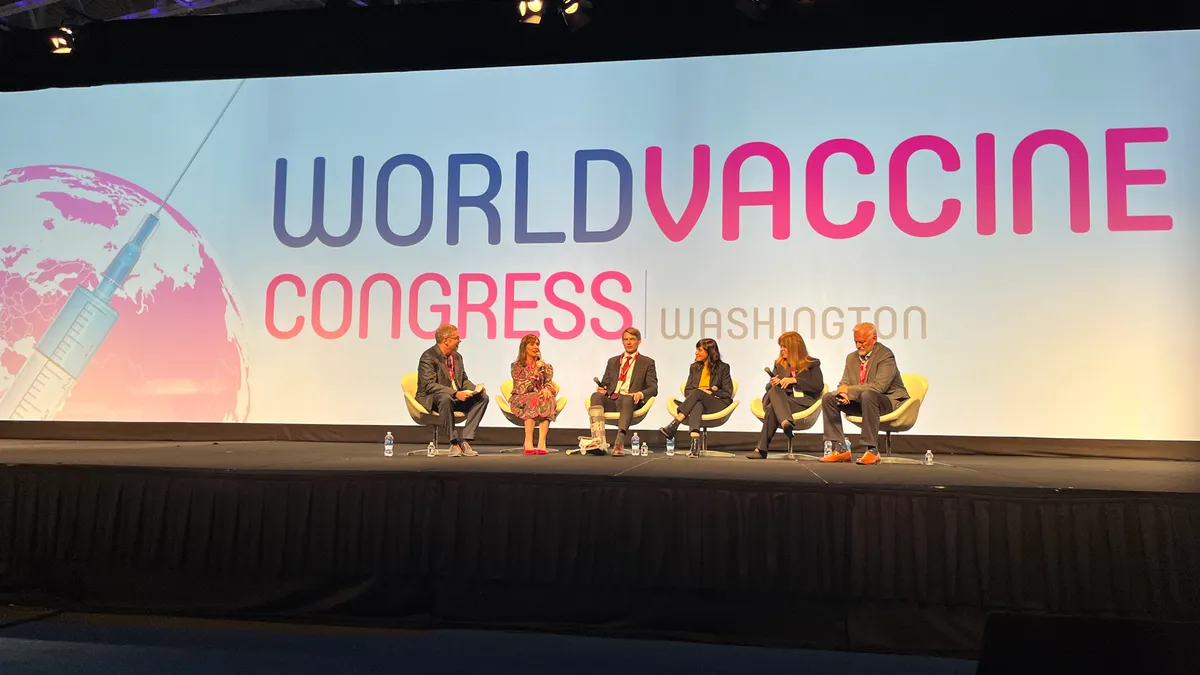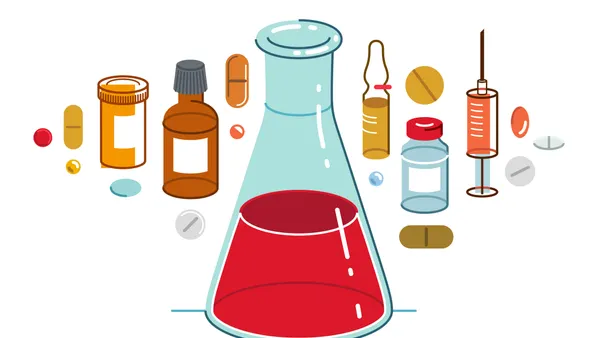Five Big Pharma scientific leaders sat together on the World Vaccine Congress stage Tuesday not as competitors but as medical colleagues with a unified goal: to develop the world's first respiratory syncytial virus (RSV) vaccine.
Of course, if or when an RSV vaccine candidate makes it to the market, the commercial teams will vie against one another. But as medical experts, the leaders from Pfizer, Merck & Co., GSK, Moderna and J&J's Janssen agreed the devastating disease affecting millions of young children and older adults is a worthy enough adversary on its own.

One member of the cohort, however, could no longer tout the benefits of a proprietary vaccine candidate. Dr. Penny Heaton, the global therapeutic area head of infectious diseases and vaccines for Janssen, reiterated news from a week earlier that the company halted phase 3 development of its RSV immunization despite positive mid-stage results. In a release at the end of March, the pharma giant stated the move was "part of a broader effort to make strategic choices for its pipeline and (R&D) investments to focus on medicines with the greatest potential benefit to patients."
Heaton implied that another reason was the number of viable candidates in the field, as indicated by her colleagues onstage.
"We looked across the RSV landscape … and we have made the decision to discontinue our RSV program," Heaton said. "But as a pediatrician and an internist, I'm thrilled by what we're about to hear and about all the new approaches that are coming out to address this huge unmet medical need."
The first vaccine studies for RSV were conducted in the 1960s but were abandoned when children who received the shot showed more severe disease than those with a placebo. The lung inflammation response led to two deaths from what is now understood as vaccine-associated enhanced respiratory disease. Decades later, technological advances have allowed for new hope in the space, but RSV continues to be the leading cause of death globally for children under 5 and a risk for severe infection in older adults.
With J&J’s exit, the other pharma giants are leading the way to a potential approval, which could put shots in arms as early as the 2023 RSV season that begins in autumn. With vaccine candidates from GSK, Pfizer and Moderna, as well as a monoclonal antibody option from Merck, the executives appeared hopeful that decades of waiting might finally come to a close.
Here’s a look at the companies’ leading candidates.
GSK's Arexvy
GSK received a positive vote from the FDA's independent board in March for its vaccine called Arexvy, which is aimed to reach older adults. Dr. Piyali Mukherjee, vice president and head of medical affairs for vaccines at GSK, said the shot was made with that population in mind — and this is the same company that brought the shingles vaccine Shingrix to older adults.
"The GSK vaccine has been designed purposefully to elicit immunogenicity and high efficacy in older populations who have very severe forms of RSV because of … age-related decline in immunity as well as comorbidities," Mukherjee said. The FDA has given the potential approval a target date at the beginning of May.
The infections in adults often fly a little under the radar compared with those in babies, but Mukherjee pointed out that the burden is still extraordinarily high.
"Older adults have the most severe outcomes of RSV … and why it is so important to have a vaccine is that the most important thing for older adults is to maintain independence," Mukherjee said. "Once an individual is hospitalized for RSV … they lose their independence."
GSK is also exploring durability of the vaccine over multiple seasons, comparing two groups of patients, one of which received one shot to be followed by a booster after three years and the other group to receive annual shots over the same period. Those results are expected in a few months, Mukherjee said.
“It’s time after 60 years of development, trial after trial and so many failures, to have now different approaches that are coming hopefully very soon to be available at least in the U.S.”

Dr. Alejandra Gurtman
Vice president and global RSV clinical lead, Pfizer
The quickening pace of vaccine development can in part be attributed to lessons from the pandemic, she said.
"COVID really changed the game — once you stretch something, it never goes back to its original size," Mukherjee said. "The world of vaccine development changed and that is a game changer compared to the pace of people working before."
Pfizer's Abrysvo
Like GSK, Pfizer also received a positive FDA advisory committee vote for its candidate Abrysvo in older adults and has a similar target decision date in May. Beyond older adults, Pfizer is also studying the vaccine in late-stage trials for pregnant women to address the infant population, and the company released data Thursday showing the shot was 82% effective in preventing severe infections in the children of vaccinated mothers.
Dr. Alejandra Gurtman, vice president and global RSV clinical lead at Pfizer, pointed to challenges raising awareness about the need for vaccination against the disease.
"Last season was a bad season with RSV … and right now the (vaccine) schedule is getting crowded," Gurtman said, pointing out that intensive-care units were over capacity as childhood infections rose.
Maternal vaccinations, in particular, could be a way to increase protection for infants, she said.
"Obstetricians in the last few years actually have a much better understanding of how important it is to vaccinate mothers," Gurtman said. "One of the advantages of vaccines is we've got protection from day one."
And Gurtman appreciates the number of approaches that are arriving for patients.
"It's time after 60 years of development, trial after trial and so many failures, to have now different approaches that are coming hopefully very soon to be available at least in the U.S.," she said.
Moderna's mRNA-1345
Moderna, the newest member of the biopharma heavyweights, is using the mRNA platform that led to the quick development of its COVID-19 vaccine to bring an RSV shot to the market.
The company has an ongoing phase 3 trial in more than 35,000 adults in 20 countries — after meeting the first analysis point of the event-driven study, the vaccine showed higher than 80% efficacy, said Dr. David Martin, vice president and global head of real-world evidence at Moderna, which expects to submit for regulatory approval in the first half of this year.
Martin said these RSV vaccines are past due, and it will now be important to make them part of mainstream medical thinking.
"We have the technology — we shouldn't live in a world where people have one more exacerbation that could have been prevented," Martin said. "Hopefully we can work in conjunction with clinicians to change that mindset over time and make a difference."
The benefits of the mRNA platform include its flexibility, he added.
"I think the things that are key to remember about the mRNA platform is that it's extensible to other potential target populations like maternal and pediatric and … we're able to build combination vaccines by adding mRNA sequences using our platform approach," Martin said.
Merck's clesrovimab
Merck stands apart in its approach to RSV in that its candidate is a monoclonal antibody. Still, the company’s clesrovimab can act as a "monoclonal antibody vaccination" by extending protection through one dose over an entire RSV season, said Dr. Kevin Russell, associate vice president of clinical research at Merck Research Laboratories.
"As a monoclonal antibody, the impact is immediate, and I think that that's very important when we're thinking about protecting our very young," Russell said. The company is in a phase 3 trial for infants less than 12 months old and expects results by the end of 2024.
The regulatory framework for bringing forward a monoclonal antibody as a vaccination is a hurdle, Russell said.
"There really are barriers to thinking about a novel entity being brought to the table — monoclonal antibodies, you think of as treatments, not for passive protection," Russell said. "And that's what it is in this situation, and it needs to be treated like a vaccine to have the impact that we think it can have."
Of course, price is a concern — monoclonal antibodies are historically in a different ballpark from vaccines when it comes to cost.
"The intention is, we need to roll this out in a vaccine-like way," Russell said. "That is going to be a goal, but it's early to say much about that."
However, an infection with the prevalence and deadliness of RSV requires more than one approach, and Russell argued there's room for both.
"At this rate, there are a lot of modalities coming to the table," Russell said. "And it's going to be exciting to see how they're implemented."













